Departures (Japanese: ????? Hepburn: Okuribito, "one who sends off") is a 2008 Japanese drama film directed by Y?jir? Takita and starring Masahiro Motoki, Ry?ko Hirosue, and Tsutomu Yamazaki. Loosely based on Coffinman, a memoir by Shinmon Aoki, the film follows a young man who returns to his hometown after a failed career as a cellist and stumbles across work as a n?kanshi—a traditional Japanese ritual mortician. He is subjected to prejudice from those around him, including from his wife, because of strong social taboos against people who deal with death. Eventually he earns their respect and learns the importance of interpersonal connections through the beauty and dignity of his work.
| Departures | |
|---|---|
Japanese release poster | |
| Directed by | Y?jir? Takita |
| Produced by | Toshiaki Nakazawa |
| Written by | Kund? Koyama |
| Starring |
|
| Music by | Joe Hisaishi |
| Cinematography | Takeshi Hamada |
| Edited by | Akimasa Kawashima |
Production company | Amuse Soft Entertainment Asahi Shimbun Dentsu Mainichi Broadcasting System Sedic Shochiku ShoPro TBS Radio & Communications Tokyo Broadcasting System |
| Distributed by | Shochiku |
Release date |
|
Running time | 130 minutes |
| Country | Japan |
| Language | Japanese |
| Box office | $70 million |
The idea for Departures arose after Motoki, affected by having seen a funeral ceremony along the Ganges when travelling in India, read widely on the subject of death and came across Coffinman. He felt that the story would adapt well to film, and Departures was finished a decade later. Because of Japanese prejudices against those who handle the dead, distributors were reluctant to release it—until a surprise grand prize win at the Montreal World Film Festival in August 2008. The following month the film opened in Japan, where it went on to win the Academy Prize for Picture of the Year and become the year's highest-grossing domestic film. This success was topped in 2009, when it became the first Japanese production to win the Academy Award for Best Foreign Language Film.
Departures received positive reviews, with aggregator Rotten Tomatoes indicating an 79% approval rating from 106 reviews. Critics praised the film's humour, the beauty of the encoffining ceremony, and the quality of the acting, but some took issue with its predictability and overt sentimentality. Reviewers highlighted a variety of themes, but focused mainly on the humanity which death brings to the surface and how it strengthens family bonds. The success of Departures led to the establishment of tourist attractions at sites connected to the film and increased interest in encoffining ceremonies, as well as adaptation of the story for various media, including manga and a stage play.
Screenplay
Daigo Kobayashi (Masahiro Motoki) loses his job as a cellist when his orchestra is disbanded. He and his wife Mika (Ry?ko Hirosue) move from Tokyo to his hometown in Yamagata, where they live in his childhood home that was left to him when his mother died two years earlier. It is fronted by a coffee shop that Daigo's father had operated before he ran off with a waitress when Daigo was six; since then the two have had no contact. Daigo feels hatred towards his father and guilt for not taking better care of his mother. He still keeps a "stone-letter"—a stone which is said to convey meaning through its texture—which his father had given him many years before.
Daigo finds an advertisement for a job "assisting departures". Assuming it to be a job in a travel agency, he goes to the interview at the NK Agent office and learns from the secretary, Yuriko Kamimura (Kimiko Yo), that he will be preparing bodies for cremation in a ceremony known as encoffinment. Though reluctant, Daigo is hired on the spot and receives a cash advance from his new boss, Sasaki (Tsutomu Yamazaki). Daigo is furtive about his duties and hides the true nature of the job from Mika.
His first assignment is to assist with the encoffinment of a woman who died at home and remained undiscovered for two weeks. He is beset with nausea and later humiliated when strangers on a bus detect an unsavoury scent on him. To clean himself, he visits a public bath which he had frequented as a child. It is owned by Tsuyako Yamashita (Kazuko Yoshiyuki), the mother of one of Daigo's former classmates.
Over time, Daigo becomes comfortable with his profession as he completes a number of assignments and experiences the gratitude of the families of the deceased. Though he faces social ostracism, Daigo refuses to quit, even after Mika discovers a training DVD in which he plays a corpse and leaves him to return to her parents' home in Tokyo. Daigo's former classmate Yamashita (Tetta Sugimoto) insists that the mortician find a more respectable line of work and, until then, avoids him and his family.
After a few months, Mika returns and announces that she is pregnant. She expresses hope that Daigo will find a job of which their child can be proud. During the ensuing argument, Daigo receives a call for an encoffinment for Mrs Yamashita. Daigo prepares her body in front of both the Yamashita family and Mika, who had known the public bath owner. The ritual earns him the respect of all present, and Mika stops insisting that Daigo change jobs.
Sometime later, they learn of the death of Daigo's father. A reluctant Daigo goes with Mika to another village to see the body. Daigo is at first unable to recognize him, but takes offence when local funeral workers are careless with the body. He insists on dressing it himself, and while doing so finds a stone-letter which he had given to his father, held tight in the dead man's hands. The childhood memory of his father's face returns to him, and after he finishes the ceremony, Daigo gently presses the stone-letter to Mika's pregnant belly.
Cultural background
Japanese funerals are highly ritualized affairs which are generally—though not always—conducted in accordance with Buddhist rites. In preparation for the funeral, the body is washed and the orifices are blocked with cotton or gauze. The encoffining ritual (called n?kan), as depicted in Departures, is rarely performed, and even then only in rural areas. This ceremony is not standardized, but generally involves professional morticians (??? n?kanshi) ritually preparing the body, dressing the dead in white, and sometimes applying make-up. The body is then put on dry ice in a casket, along with personal possessions and items necessary for the trip to the afterlife.
Despite the importance of death rituals, in traditional Japanese culture the subject is considered unclean as everything related to death is thought to be a source of kegare (defilement). After coming into contact with the dead, individuals must cleanse themselves through purifying rituals. People who work closely with the dead, such as morticians, are thus considered unclean, and during the feudal era those whose work was related to death became burakumin (untouchables), forced to live in their own hamlets and discriminated against by wider society. Despite a cultural shift since the Meiji Restoration of 1868, the stigma of death still has considerable force within Japanese society, and discrimination against the untouchables has continued.
Until 1972, most deaths were dealt with by families, funeral homes, or n?kanshi. As of 2014, about 80% of deaths occur in hospitals, and preparation of the bodies is frequently done by hospital staff; in such cases, the family often does not see the body until the funeral. A 1998 survey found that 29.5% of the Japanese population believed in an afterlife, and a further 40% wanted to believe; belief was highest among the young. Belief in the existence of a soul (54%) and a connection between the worlds of the living and the dead (64.9%) was likewise common.
Conception and preproduction
In the early 1990s, a 27-year-old Motoki and his friend travelled to India; just before going, at the friend's recommendation he read Shin'ya Fujiwara's Memento Mori (Latin for "remember that you will die"). While in India, he visited Varanasi, where he saw a ceremony in which the dead were cremated and their ashes floated down the Ganges. Witnessing this ceremony of death against a backdrop of bustling crowds going about their lives deeply affected Motoki. When he returned to Japan, he read numerous books on the subject of death, and in 1993 wrote a book on the relationship between life and death: Tenkuu Seiza—Hill Heaven. Among the books he read was Shinmon Aoki's autobiographical Coffinman: The Journal of a Buddhist Mortician (????? N?kanfu Nikki), which exposed Motoki to the world of the n?kanshi for the first time. Motoki said he found a sense of mystery and near-eroticism to the profession that he felt had an affinity with the film world.
Getting funding for the project was difficult because of the taboos against death, and the crew had to approach several companies before Departures was approved by Toshiaki Nakazawa and Yasuhiro Mase. According to the film's director, Y?jir? Takita, a consideration in taking on the film was the age of the crew: "we got to a certain point in our lives when death was creeping up to become a factor around us". Kund? Koyama was enlisted to provide the script, his first for a feature film; his previous experience had been in scripting for television and stage. Takita, who had begun his career in the pink film genre before entering mainstream filmmaking in 1986 with Comic Magazine, took on the director's role in 2006, after producer Toshiaki Nakazawa presented him with the first draft of the script. In a later interview he stated "I wanted to make a film from the perspective of a person who deals with something so universal and yet is looked down upon, and even discriminated against". Although he knew of the encoffining ceremony, he had never seen one performed.
Production of Departures took ten years, and the work was ultimately only loosely adapted from Coffinman; later revisions of the script were worked on collaboratively by the cast and crew. Although the religious aspects of funerals were important in the source work, the film did not include them. This, together with the fact that filming was completed in Yamagata and not Aoki's home prefecture of Toyama, led to tensions between the production staff and the author. Aoki expressed concern that the film was unable to address "the ultimate fate of the dead". The first edition of the book was broken into three parts; the third, "Light and Life", was an essay-like Buddhist musing on life and death, regarding the "light" seen when one perceived the integration of life and death, that is absent from the film. Aoki believed the film's humanistic approach did away with the religious aspects that were central to the book—the emphasis on maintaining connections between the living and the dead that he felt only religion could provide—and refused to allow his name and that of his book to be used. For the new title, Koyama coined the term okuribito as a euphemism for n?kanshi, derived from the words okuru ("to send off") and hito ("person").
While the book and film share the same premise, the details differ considerably; Aoki attributed these changes to the studio making the story more commercial. Both feature a protagonist who endures uneasiness and prejudice because of his job as a n?kanshi, undergoes personal growth as a result of his experiences, and finds new meaning in life when confronted with death. In both, the main character deals with societal prejudices and misunderstandings over his profession. In Coffinman, the protagonist was the owner of a pub-café that had gone out of business; during a domestic squabble his wife threw a newspaper at him, in which he found an ad for the n?kanshi position.<
Watch movie Departures 2008 Film online on Amazon
Watch movie Departures 2008 Film online
Watch The Movie On PrimeSingapore Full HD Movie Download

Alag Alag Full HD Movie Download

Apne Hue Paraye Full HD Movie Download
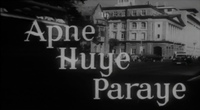
Khoon Khoon Full HD Movie Download

Anmol Moti Full HD Movie Download

Paise Ki Gudiya Full HD Movie Download
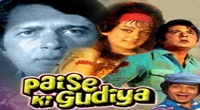
Sikandar (2009) Full HD Movie Download
.jpg)
Chor Machaye Shor (1974) Full HD Movie Download
.jpg)
Bhavnao Ko Samjho Full HD Movie Download
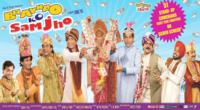
Siri Siri Muvva Full HD Movie Download
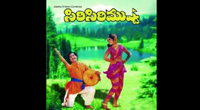
Patnam Vachina Pativratalu Full HD Movie Download
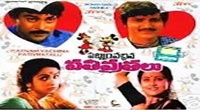
Harry Potter and the Order of the Phoenix Full HD Movie Download

Ayiram Poi Full HD Movie Download
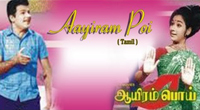
Enga Ooru Paatukkaaran Full HD Movie Download

Donga Mogudu Full HD Movie Download
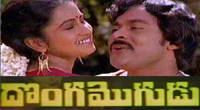
Dear Brother Full HD Movie Download

Ravi I Love You Full HD Movie Download
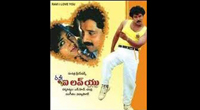
Tiger Ramadu Full HD Movie Download
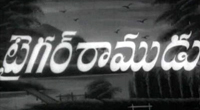
Guna Sundari Katha Full HD Movie Download

Lakshmi Kataksham Full HD Movie Download
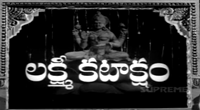
Ayaash Full HD Movie Download
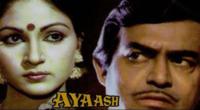
Download latest Movie from bollywood
- 1> baaghi 3
- 2> THE SKY IS PINK MOVIE FULL STORY AND REVIEW
- 3> Luka Chuppi
- 4> TO ALL THE BOYS I’VE LOVED BEFORE
- 5> Kabir Singh
- 6> Street Dancer 3D
- 7> Simmba
- 8> Gone Girl
- 9> The Girl Who Lived
- 10> Ludo
- 11> DILWALE DULHANIA LE JAYENGE
- 12> GUILTY
- 13> The Godfather
- 14> Adventures of Rusty
- 15> Sooryavanshi
- 16> Satyameva Jayate 2
- 17> Thappad
- 18> Bhool Bhulaiyaa 2
- 19> KGFChapter 2
- 20> Mardaani 2
- 21> Pinjar
- 22> Shivaji maharaj
- 23> Ek Villian 2
- 24> Hungama 2
- 25> Divergent
- 26> Mumbai Saga
- 27> The Internship
- 28> HIT (telugu)
- 29> Panga
- 30> The perfect date
- 31> 16 December
- 32> Gopala Gopala (Telugu)
- 33> Brahmastra
- 34> Gangubai Kathiawadi
- 35> Manmadhudu
- 36> Nenu local
- 37> Mahanati
- 38> Shatamanam bavathi
- 39> Lagaan
- 40> After
- 41> MOM
- 42> Shamshera
- 43> Raguvaran BTech
- 44> Khakee
- 45> The villain
- 46> OM
- 47> Mr. perfect
- 48> Bueatifull mind
- 49> Hichki
- 50> Gabbar Singh
- 51> Jogi
- 52> Before Sunrise
- 53> Before Sunset
- 54> Before Midnight
- 55> The Big Bull
- 56> Top Gun: Maverick
- 57> The Purge
- 58> The Sky is Pink
- 59> Laxmmi Bomb
- 60> Sadak 2
- 61> Sufna
- 62> Prithviraj
- 63> PK
- 64> Coolie No 1(2020)
- 65> Black Widow
- 66> Dear Zindagi
- 67> Dil Bechara
- 68> PHIR HERA PHERI
- 69> WAR
- 70> Dostana
- 71> RRR: Roudram Ranam Rudhiram
- 72> Maidan
- 73> Dabbang 3
- 74> Chhalaang
- 75> life as we know it
- 76> SherShaah
- 77> Sandeep Aur Pinky Faraar
- 78> Event Horizon
- 79> 83
- 80> Radhe: Your Most Wanted Bhai
- 81> Gunjan Saxena: The Kargil Girl
- 82> Mr India
- 83> Vivah
- 84> Anokha Bandhan
- 85> Ghost
- 86> Bhoot: Part One - The Haunted Ship
- 87> Haseen Dilruba
- 88> Laal Singh Chaddha
- 89> Qismat
- 90> Rajput
- 91> Drive
- 92> Dil Chahta Hai
- 93> Dil Ki Baazi
- 94> Dil Ka Rishta
- 95> Teesri Manzil
- 96> Dil
- 97> Love Aaj Kal
- 98> Khaali Peeli
- 99> Bunty Aur Babli 2
- 100> Atrangi Re
- 101> Gulabo Sitabo
- 102> Jodi
- 103> Suraj Pe Mangal Bhari
- 104> Deewana
- 105> Attack
- 106> Sardar Udham Singh
- 107> Toofan
- 108> THE LOVEBIRDS
- 109> Jersey
- 110> Ginny Weds Sunny
- 111> Thalaivi
- 112> Shiddat
- 113> Angels vs Zombies
- 114> Koi Mil Gya
- 115> Thank God
- 116> Bhuj: The Pride of India
- 117> Hum Aapke Hain Kaun
- 118> The Platform
- 119> Bird Box
- 120> Roohi Afzana
- 121> Torbaaz
- 122> Nikamma
- 123> World War Z
- 124> Extraction
- 125> Train to Busan
- 126> Life of Pi
- 127> SHAADI MEIN JROOR AANA
- 128> Himmat Aur Mehnat
- 129> To All The Boys: P.S. I Still Love You
- 130> Mimi
- 131> Good Newwz
- 132> Shubh Mangal Zyada Saavdhan
- 133> Raabta
- 134> Harry Potter and the Philosopher's Stone
- 135> Harry Potter and the Chamber of Secrets
- 136> Chhapaak
- 137> War of the Worlds
- 138> Harry Potter and the Prisoner of Azkaban
- 139> Harry Potter and the Goblet of Fire
- 140> MURDER MYSTERY
- 141> Shakuntala Devi
- 142> Bachchan Pandey
- 143> Jayeshbhai Jordar
- 144> Sheer Qorma
- 145> Saina
- 146> 'O' Pushpa I hate tears
- 147> Kedarnath
- 148> MS Dhoni The Untold Story
- 149> Chhichhore
- 150> Badhaai Ho
- 151> Unstoppable
- 152> Oz the Great And Powerful
- 153> The Girl on the Train
- 154> Haathi Mere Saathi 2020
- 155> The Conjuring: The Devil Made Me Do It
- 156> Gandhi Se Pehle Gandhi
- 157> The Song of Scorpions
- 158> Srimanthudu
- 159> Hello Guru Prema Kosame
- 160> Beauty and The Beast
- 161> Black Panther
- 162> Charlie and the Chocolate Factory
- 163> Bole Chudiyan
- 164> Fidaa
- 165> Duvvada Jagannadham
- 166> Bruce Lee: The Fighter
- 167> Hyper
- 168> Yaara
- 169> Red (2020)
- 170> Shivam
- 171> That Is Mahalakshmi
- 172> Nishabdham
- 173> Aashram 2020 web series
- 174> Laxmii
- 175> Mismatched
- 176> STUDENT OF THE YEAR 2
- 177> NAIL POLISH
- 178> Ramprasad Ki Tehrvi
- 179> KAAGAZ
- 180> 12 o Clock
- 181> The Power
- 182> bolo hau
- 183> Tribhanga
- 184> JAMUN
- 185> Madam Chief Minister
- 186> Maasaab
- 187> Aadhaar
- 188> Tanhaji
- 189> Bhaagi 3
- 190> Bhootnath
- 191> MALANG
- 192> Jai Mummy Di
- 193> Haathi Mere Saathi 2021
- 194> Shakeela
- 195> Unpaused
- 196> Annayya
- 197> Vamsoddharakudu
- 198> Mrugaraju
- 199> Narasimha Naidu
- 200> Sankranti
- 201> Manasu Maata Vinadhu
- 202> Anjaane
- 203> Apaharan
- 204> Bachke Rehna Re Baba
- 205> Bewafaa
- 206> Roohi
- 207> Radhe
- 208> Zindagi Khoobsoorat Hai
- 209> Yeh Mohabbat Hai
- 210> Yeh Kya Ho Raha Hai?
- 211> The Tomorrow War
- 212> DehradunDiary
- 213> Meri Shaadi Karaoo
- 214> Matruu Ki Bijlee Ka Mandola
- 215> No One Killed Jesica
- 216> Aag Ka Goola
- 217> Eight Million Dollars
- 218> Three Hundred
- 219> Cats and Dog
- 220> Decoy
- 221> Gold Rush
- 222> You Have Got Mail
- 223> Final Destination three
- 224> Tofan
- 225> Jungle
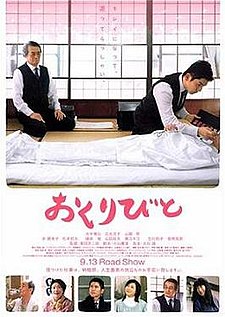 Story of movie Departures 2008 Film :
Story of movie Departures 2008 Film : 